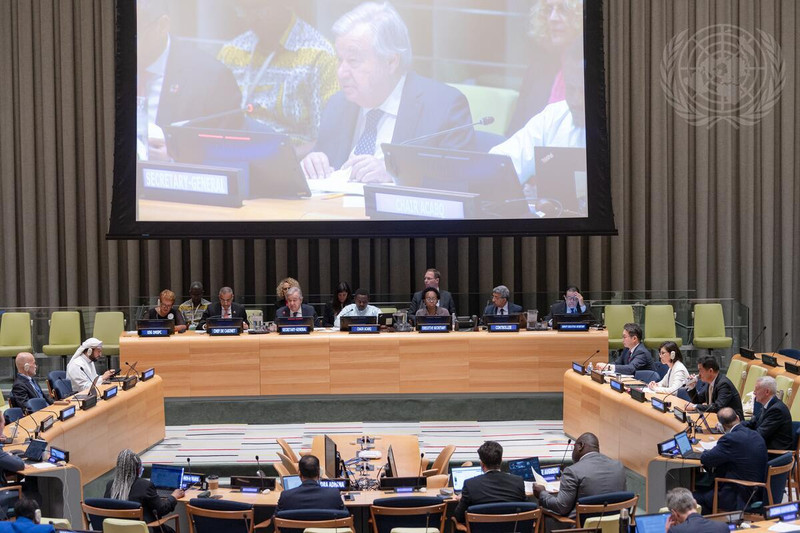At approximately 3.6 billion USD, the 2025 budget plan for its operational programmes continues to affirm the UN’s commitment to promoting peace, development, and human rights, as well as efforts to reform the world’s largest multilateral organisation.
Presenting the draft 2025 budget to the Administrative and Budgetary Committee of the 79th session of the UN General Assembly, UN Secretary-General Antonio Guterres stressed that as the world is facing multidimensional challenges, while the UN is playing an increasingly important role.
According to the UN chief, the budget plan for next year reflects the major orientations in the landmark documents adopted at the Summit of the Future held last September. This affirms the commitment to making multilateral cooperation more effective, fair and inclusive.
A look at the 2025 budget plan shows that the UN’s mission is very heavy, continuing unfinished projects while implementing new tasks under all three core pillars of the UN. Of the budget, 711 million USD is proposed to maintain the activities of special political missions.
For the peace and security pillar, the Peacebuilding Fund is expected to receive 50 million USD, with the hope of filling current funding gaps. The development pillar is expected to receive an additional 4.5 million USD compared to its 2024 level. If approved, this would be the sixth consecutive increase in funding for this pillar. This shows that sustainable development remains a core priority. Part of the increase will be spent on technical advice and support to help member countries implement the UN’s 2030 Agenda for Sustainable Development and the African Union (AU)’s Agenda 2063.
For the remaining pillar of human rights, the Office of the UN High Commissioner for Human Rights (OHCHR) is expected to receive an additional 8 million USD to carry out its mandate more effectively, especially regarding regional initiatives. About 3.5 million USD has also been added for efforts to address the humanitarian crisis in the Gaza Strip. Guterres stressed that the UN Relief and Works Agency for Palestine Refugees (UNRWA) is a lifeline for the people there and plays an important role in the stability of the region.
While presenting the budget plan, Guterres also mentioned that ensuring the availability of funding is also an issue. If member states are slow to contribute to the budget, UN agencies will have difficulty implementing their activities next year. According to Guterres, the budget shortage in 2024 has forced the UN Office at Geneva (Switzerland) to take cost-saving measures, such as temporarily closing some headquarters buildings and limiting staff travel and spending.
Discussions in the Administrative and Budgetary Committee on the 2025 budget plan are expected to last for several weeks. The plan and its recommendations will then be submitted to the UN General Assembly for approval at its plenary session in December.
With time running out soon, President of the 79th session of the UN General Assembly Philemon Yang urged the Committee to ensure a viable budget plan for 2025. Highlighting the challenges to multilateralism, Yang called on all parties to put aside their differences and help sustain and strengthen the operation of the UN. Representatives of many countries on the Committee also stressed that resources should be used effectively and equitably based on the main pillars of operations.
The UN’s operations will face many obstacles without contributions from its member states. Emphasising this concern at the end of the presentation of the 2025 budget plan, the UN head called on member states to fully and promptly fulfil their financial obligations, and noted that this is an important resource that will help the UN to implement and fulfil its responsibilities in the coming time.
















